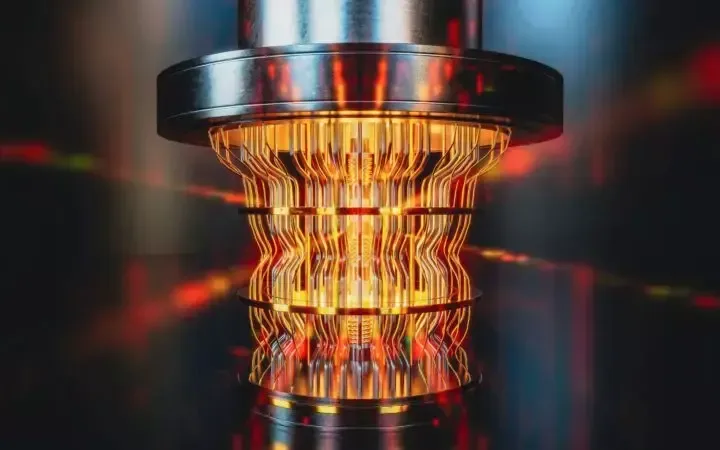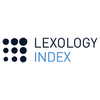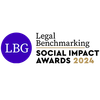What are quantum computers and how ‘quantum’ are they?

Huge waves of interest are being generated by the development of powerful quantum computers by a select group of the world’s leading companies. So much so that a (quite beautiful) quantum computer recently made it onto the cover of Time Magazine. Here, our expert Chris Lesterexplores the history of this fascinating field and asks — what makes quantum computers ‘quantum’?
The age of quantum… and computers
The exact starting point of the quantum age is difficult to pinpoint, but it’s fair to say that many of the theoretical underpinnings of quantum mechanics were first identified in the early 20th century. In the first decade of that century, Max Planck and Albert Einstein both found that they could more accurately explain physical phenomena concerning light and matter (blackbody radiation and the photoelectric effect) by assuming that light is ‘quantised’ in discrete packets of energy.
Later developments by many others demonstrated the surprising result that light and physical matter can exhibit properties of both particles and waves. This wave-particle duality led to the discovery of many unexpected effects, including ‘quantum tunnelling’, where (for example) an electron can ‘leap’ to the other side of a barrier that — according to the pre-quantum theories — the particle really doesn’t have enough energy to overcome. Rather than being of purely academic or intellectual interest, quantum tunnelling has found real-world application in tunnel diodes — a type of semiconductor device that exhibits negative differential resistance.
The 20th century also saw the dawn of the age of digital computers, from early systems that filled entire rooms to the smartphones of today, carried in the pockets of billions of people. This rapid development has been driven by the well-known trend of being able to fit ever more transistors of ever smaller sizes onto a single chip. As famously noted by Richard Feynman, as electronic components used in computers reach ever-smaller microscopic scales, the unusual effects predicted by quantum mechanics are likely to become increasingly important. It’s therefore tempting to ask (as Feynman did) whether the strange effects of the quantum world could be exploited to make more powerful computers?
A quantum (ish) computer?
A quantum computer is often described as a device that exploits the quantum mechanical properties of matter to perform computations. So, does this mean that all modern computers — which rely on subatomic particles having a distinctly quantum character — are, to some extent, ‘quantum computers’?
Take for example the computer circuit disclosed in UK patent application GB952610A, first published in 1964, which uses tunnel diodes to perform calculations. The circuit receives two signals consisting of binary bits (0s and 1s) and the negative differential resistance (a key characteristic of the tunnel diodes) is used to add the two signals together. The tunnel diodes exploit the quantum mechanical effect known as quantum tunnelling and the circuit uses these quantum-mechanical tunnel diodes to perform calculations. So does this qualify the circuit in GB952610A as a kind of quantum computer? Or is there something missing?
Quantum ‘all the way down’
While it’s true that all modern digital computers rely on subatomic particles to work — and some even use components that exploit quantum mechanical effects — many would say that in a ‘truly’ quantum computer, everything from the encoding of data to the logic of the calculations must be quantum. In other words, a quantum computer must be quantum ‘all the way down’.
So even though GB952610A discloses a computer that relies on a quantum mechanical effect (quantum tunnelling) to perform calculations, it still adds together binary bits (0s and 1s). In contrast, for the kinds of computers that are generally described as ‘quantum computers’, even the bits themselves are quantum bits, or ‘qubits’.
A qubit is a quantum system that has (for example) two levels or states, usually written as ∣0⟩ and ∣1⟩. The qubit can be in either state, or — unlike the bits in a digital computer — in a combination or mixture of both states. Such mixing of states is known as superposition and this is another fundamental idea from quantum mechanics. Being able to manipulate and perform calculations with qubits as opposed to bits opens the door to a whole world of new and exciting possibilities.
New and specialised algorithms that use qubits could one day enable quantum computers to perform calculations much faster than their digital counterparts. For example, Grover’s algorithm could allow faster searches to be performed using qubits. In fact, the first experimental demonstration of a quantum computer in 1998 used a 2-qubit quantum computer to implement this very algorithm.
While this early quantum computer was able to solve only the most basic of problems — and could maintain coherence for just a few nanoseconds — it was the forerunner of the cutting-edge quantum computers (with many dozens of qubits) in use today. And while it may seem that there is a long way to go before quantum computers overtake digital computers in terms of power and computing speed, there exists a real appetite to realise their benefits sooner rather than later.
Rise of the quantum computing era
Although quantum effects have been known and used in computers for quite some time, it seems that the age of quantum computing proper is just getting started. Each year, increasing numbers of patent applications relating to quantum computation are being filed in jurisdictions across the globe, perhaps reflecting the huge sums being invested.
Particularly interesting recent developments include the emergence of hybrid computers — those which combine both digital and quantum processors — and the expanding list of commercially available systems that are being used by some of the world’s leading companies. From minimising passenger transit times in airports to transforming financial services and detecting fraud, quantum computers are already being used to help solve real-world problems across many industries.
Our dedicated quantum technologies team has extensive experience in navigating the patent law relevant for protecting quantum computing innovations. Our cross-disciplinary team, which also includes experts in artificial intelligence, can help you to obtain strong IP protection in this rapidly expanding sector.
To find out more, get in touch with me at [email protected].




















